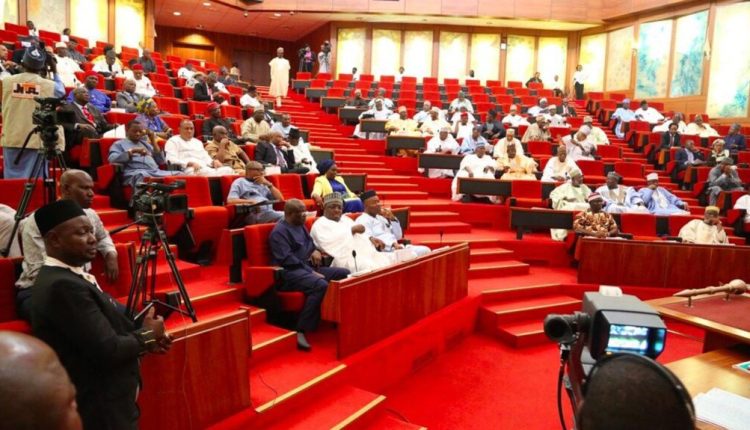BREAKING: Enough Of The Talk Shop

Returning from recess, the Senate declared it would hold a two-day security summit. The upper chamber resolved that deliberations from the proposed summit would provide the framework to help the federal government tackle the prevalent insecurity. The senators insist that the summit will include delegates from the presidency, state governors, traditional leaders, student bodies, and representatives from communities ravaged by insurgency.
Some of the issues the summit would address are the leakage of sensitive military information to militant groups, the recruitment process, community vigilante groups, and community policing.
On the face of it, summits are meant to generate pragmatic ideas to solve critical problems. So, we are not averse to summits in themselves. Interestingly, the proposed security summit by this Senate is not new. If anything, we are tempted to describe it as an attempt at rehashing a jaded concept that failed to yield much in the past.
We recall that the eighth and ninth Senates embarked on the seemingly wasteful security summit business. And if the country’s state is anything to go by, nothing rewarding would likely result. The security situation in the country has since assumed more deplorable dimensions as new terror gangs have emerged right under the noses of the military while conducting high-level operations.
It’s more shameful than baffling that for close to two decades, Nigeria has battled this same security crisis. Nigerians deserve more than they are getting given the resources channelled into fighting insurgency, terrorism, banditry or any other nomenclature that could be adduced to the malaise that has, instead, escalated.
Intriguingly, there is a widespread perception that the resources expended to extinguish the embers of insecurity in the country have been the fuel that keeps the flame burning. Even worse, security experts are beginning to get worried that insecurity has developed into an industry all its own.
This raises questions about the quality of oversight by the National Assembly on security forces. As empowered by law, the legislature has the mandate to interrogate and hold to account the military hierarchy on how public funds meant to guarantee security are used. They should ask the right questions and expect cogent answers as to why the resource input is inversely proportional to the results derived.
This newspaper strongly believes that the consequences wouldn’t have been this devastating if the National Assembly had lived up to this responsibility. We see how other countries and democracies grill and hold their security chiefs to account. We demand the same in Nigeria.
They do so because they value the lives of their citizens. That is at the core of why such oversight functions are robust, forward-looking, and practical. So, the fundamental question that has remained unanswered in Nigeria has been: What is the value of a Nigerian life?
The call for a new summit would have been applauded if it held any promise of having an impact. When the motion for the summit was raised on the floor of the chamber, some lawmakers were not optimistic that it would achieve much. More experienced lawmakers knew what the outcome would likely be: another talk-shop and theatrical display.
Not even the argument that the executive rarely takes the legislature’s motions and resolutions seriously (hence the little or no implementation of recommendations from previous summits) would justifiably defend the legislature on this score. It proves the National Assembly’s inability to hold the executive to account, too, perhaps because of the rubber stamp syndrome, which has worsened in recent years.
Elections are upon us, and lawmakers are preparing to face their constituents. For the past two years, some lawmakers have barely visited most parts of their constituencies to properly understand how the people whose mandate they got into office are faring.
From self-serving bills and motions to resolutions that preserve the status quo, the legislature has failed to live up to expectations for the better part of this democratic experience. Lawmakers seem only to become animated when their welfare is at stake. It is no wonder that demands for a unicameral or a part-time legislature continue to grow by the turn of each legislative year.
Nevertheless, having resolved to proceed with the summit, we hope to be proven wrong this time. We hope to see a more proactive Senate that will go beyond talk by ensuring the executive shows more deliberate action.
We have dissected, interrogated, discussed, deliberated, and debated the challenges and solutions to the security crisis for far too long. What is needed now is sincere action that reflects genuine value for Nigerian lives. Talk is cheap.
